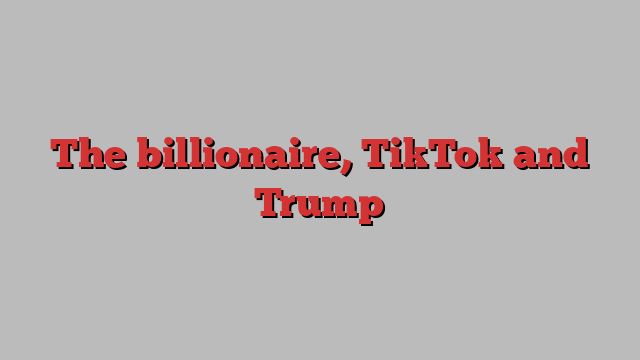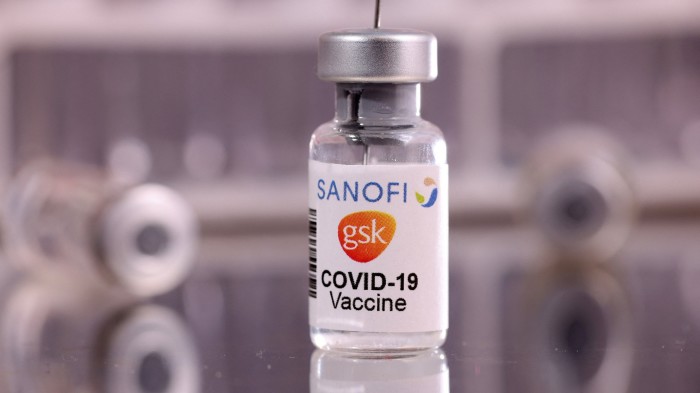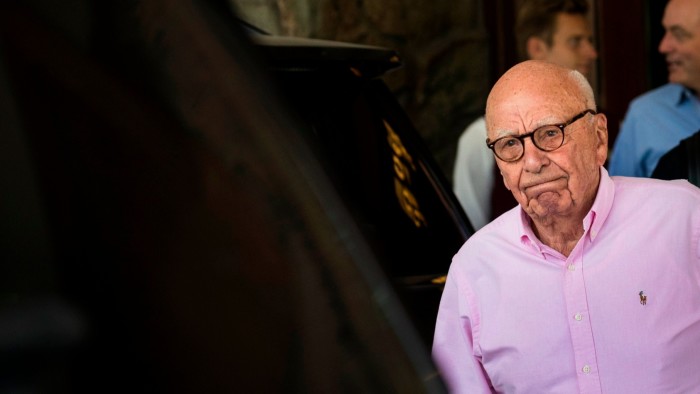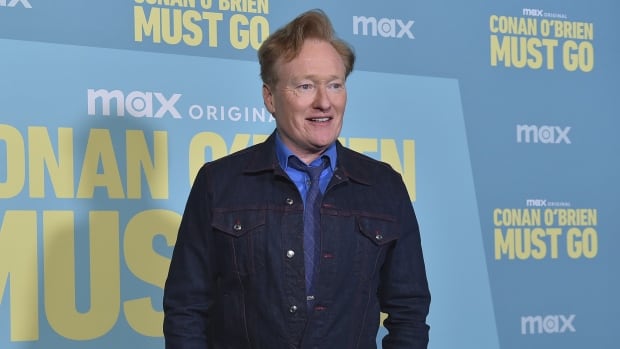
The billionaire, TikTok and Trump
One scoop to start: Apollo has sold a stake in the lending business it acquired from Credit Suisse last year shortly before the Swiss bank’s shotgun rescue by UBS, securing a multibillion-dollar investment from one of the US’s largest insurers.
And a court fight to start: A former top investment banker at Centerview Partners did not strike a valid agreement to become a full-fledged partner at the elite advisory firm during a restaurant meeting held more than a decade ago, a Delaware corporate law court ruled on Tuesday.
Welcome to Due Diligence, your briefing on dealmaking, private equity and corporate finance. This article is an on-site version of the newsletter. Premium subscribers can sign up here to get the newsletter delivered every Tuesday to Friday. Standard subscribers can upgrade to Premium here, or explore all FT newsletters. Get in touch with us anytime: [email protected]
In today’s newsletter:
-
Jeff Yass’s TikTok riches
-
Thames Water’s not-so-secure bonds
-
FTC sues to block purse deal
Jeff Yass fights for his TikTok fortune
Jeff Yass made a prescient $80,000 bet on TikTok’s parent company ByteDance more than a decade ago.
After throwing in a couple million more dollars, the wager has paid off by many multiples of itself: the stake’s now worth an estimated $40bn. His quant trading firm Susquehanna International Group owns roughly 15 per cent of the company, and the stake represents a significant chunk of his net worth.
However, that lucrative bet has gotten complicated. Yass’s estimated $30bn fortune is now caught up in growing geopolitical tensions between China and the US as Congress pushes ahead to potentially ban the viral video platform, the FT reports.
SIG’s playbook is to bet small amounts of money on a lot of companies. While the group has invested $3.5bn in more than 350 Chinese start-ups, it somehow hasn’t come under fire in Washington yet, even while rivals like Sequoia Capital and GGV Capital have faced scrutiny.
Yass, who got his start in finance with a finesse for betting on horse racing and poker, is throwing himself into the political arena. He’s laid out more than $46mn for Republican candidates, making him the largest donor this US election cycle.
He’s backed influential rightwing group Club for Growth and is the main donor behind Protect Freedom PAC, a Republican fundraising super-political action committee aligned with Senator Rand Paul. (Paul opposes the TikTok ban.)
Yass has also had some contact with Donald Trump, but says he’s never donated to his campaign.
Still, Yass’s political donations and schemes can only do so much. A bill requiring ByteDance to divest TikTok or face having the app banned passed in the Senate on Tuesday. The bill will now be sent to President Joe Biden, who has pledged to sign it into law.
Will Yass get his way?
Cracks show in Thames Water’s financial plumbing
The supposedly bulletproof capital structure used to finance Thames Water isn’t looking so solid.
The finances backing the UK’s largest water utility and much of the country’s crucial infrastructure are structured in a way that’s supposed to keep some bondholders shielded from impairment.
But that’s quickly starting to unravel. A default in the private utility’s parent company Kemble has leaked through to what were thought to be “gold standard” bonds securitised at Thames Water’s regulated operating companies.
Obviously, that default has made debt investors nervous. The bonds had been considered the next best thing after government debt. Now, not so much.
While some distressed debt investors have been offloading their bonds, it’s not all doom and gloom. US hedge fund Elliott Management has instead been on a buying spree, betting that the market has grown too pessimistic over potential losses.
Problems really started when Thames Water’s shareholders, including the Chinese and Abu Dhabi sovereign wealth funds, backed away from investing a promised £500mn of equity and declared the company “uninvestable”. That triggered the holding company’s default.
The more than £16bn worth of Thames Water bonds sitting below the holding company are part of a so-called whole business securitisation. The debt inside the regulatory ringfence — which surrounds the core utility and means it has to abide by regulatory conditions — plunged to little over half of its face value.
The group of senior class A and subordinate class B bonds are securitised at the operating companies. They’re shielded from default at the holding company and secured against a predictable and increasing revenue stream with monopoly-like market share. They were long thought to be safe.
But then the Class B bond plunged, falling to a little over half of its face value following the default.
With the government now also working on contingency plans to nationalise Thames Water (which includes losses for those ringfenced bondholders), the WBS funding model is on shaky ground.
FTC tries to prevent ‘accessible luxury’ dominance
The US Federal Trade Commission is cracking down on Big Purse.
On Tuesday, the antitrust regulator sued to block an $8.5bn tie-up between the owners of Michael Kors and Coach, saying the deal would end “head-to-head” competition between the groups’ brands, which specialise in affordable handbags that look expensive.
When Tapestry announced it planned to buy Capri last summer, it seemed like the deal would be smooth sailing. Shares of Coach’s owner Capri traded up to $54 per share. Now they’re below $37.
The regulator is arguing that there’s an important distinction between the likes of Kate Spade (which Tapestry also owns) and Louis Vuitton. To make its case for the risks of combining the two companies, the FTC defines a specific market: “accessible luxury”.
In the world of cheap(er) purses, price is everything and competition is fierce. If the deal goes through, that would fade, the FTC argues.
Capri and Tapestry pushed back, pointing out that the US was the only regulator to not approve the deal. (It’s already been cleared by regulators in Japan and Europe.)
Henry Liu, director of the FTC’s competition bureau, said Tapestry had the goal of becoming a “serial acquirer” and that its push to buy Capri would “further entrench its stronghold in the fashion industry”.
Lina Khan’s FTC has been on a tear. In recent months, the regulator sued Apple for allegedly building a monopoly in the smartphone market and it also sued to block Kroger’s acquisition of Albertsons — the largest supermarket merger in US history.
Tapestry and Capri will both argue that the regulator has basically fabricated a market in its accessible luxury, Lex writes.
The insinuation from the two handbag makers: Khan and her staff are not avid Vogue readers. The glossy Condé Nast title has a list of more than 40 must-have bags for the “accessible” set. Just one bag from the two companies made the list.
Job moves
-
Golden Goose has appointed Marco Bizzarri to the Italian luxury sneaker label’s board of directors. He was previously the chief executive of Gucci.
-
Deutsche Bank has hired Alexandre Lotfi as head of wealth management lending for the UK and central Europe at its private bank. He previously worked for the Bank of Singapore.
-
UBS has hired Sean Lynch as a managing director for technology investment banking in California. He previously worked for Barclays.
-
Paul Hastings has hired Alexander Temel as global co-chair of the firm’s private equity practice. He previously worked for Sidley Austin.
Smart reads
Unlikely backer Retired hedge fund billionaire Leon Cooperman and a “predatory” cash-advance company had no reason to cross paths, Bloomberg reports. Then came a private credit fund.
‘Curse of 35’ As China’s tech sector struggles through an economic slowdown, bosses are making no secret that they favour younger and unmarried workers, the FT reveals.
Ark leaks cash Growth stock fan Cathie Wood is bleeding assets after she missed out on the AI stock boom and tethered her closely watched fund to Tesla, The Wall Street Journal writes.
News round-up
Lenders flying blind on private equity risk, Bank of England warns (FT)
Employee non-compete agreements barred by US regulator (FT)
IBM nears deal for cloud-software provider (WSJ)
Tesla shares rise as it plans to accelerate launch of ‘more affordable’ models (FT)
Jamie Dimon cautions over soft landing for ‘unbelievable’ US economy (FT)
Gucci-owner Kering expects first-half profit to shrink by up to 45% (FT)
Due Diligence is written by Arash Massoudi, Ivan Levingston, William Louch and Robert Smith in London, James Fontanella-Khan, Ortenca Aliaj, Sujeet Indap, Eric Platt, Mark Vandevelde, Antoine Gara and Amelia Pollard in New York, Kaye Wiggins in Hong Kong, George Hammond and Tabby Kinder in San Francisco, and Javier Espinoza in Brussels. Please send feedback to [email protected]
Recommended newsletters for you
FT Asset Management — The inside story on the movers and shakers behind a multitrillion dollar industry. Sign up here
Unhedged — Robert Armstrong dissects the most important market trends and discusses how Wall Street’s best minds respond to them. Sign up here






